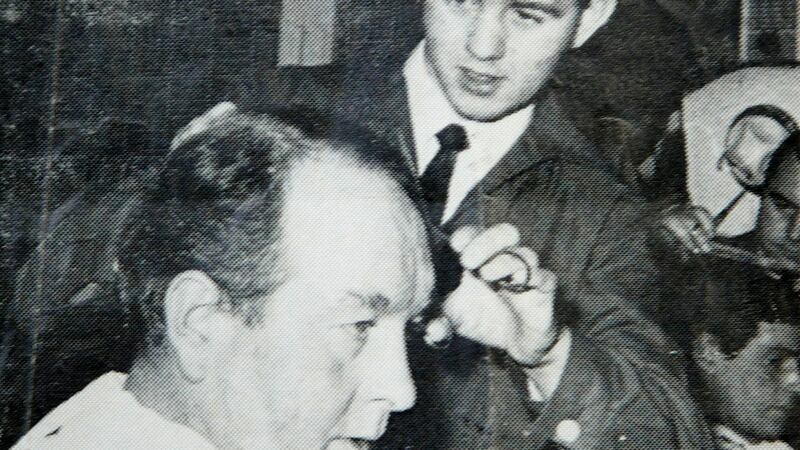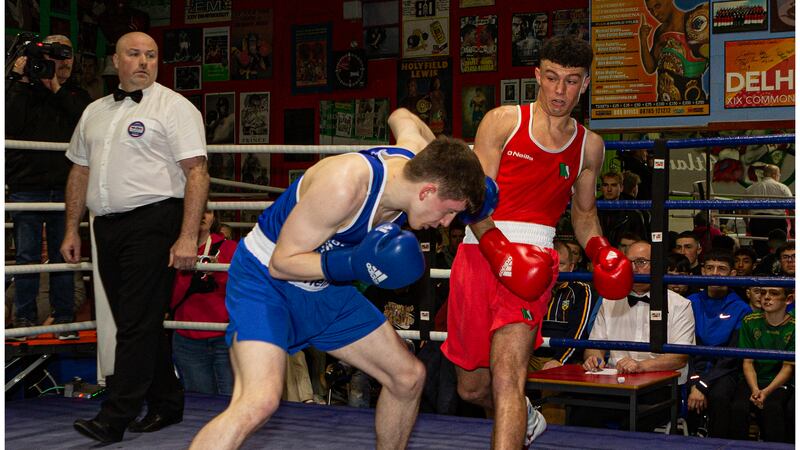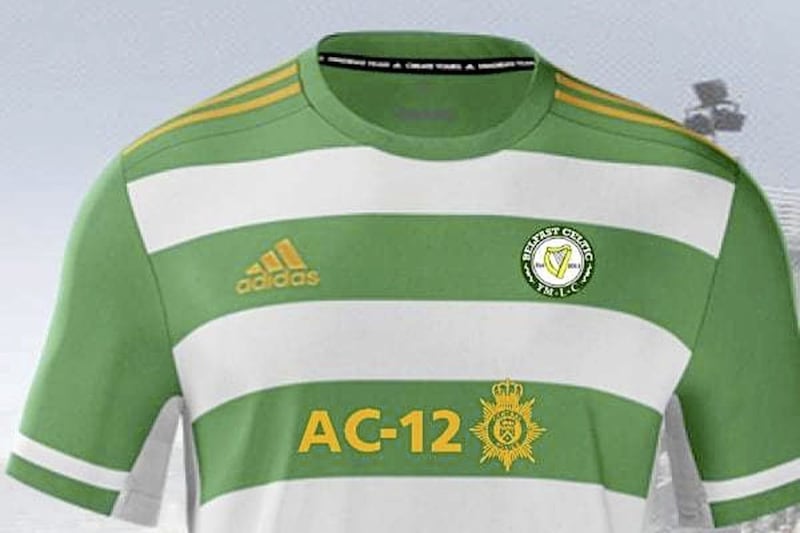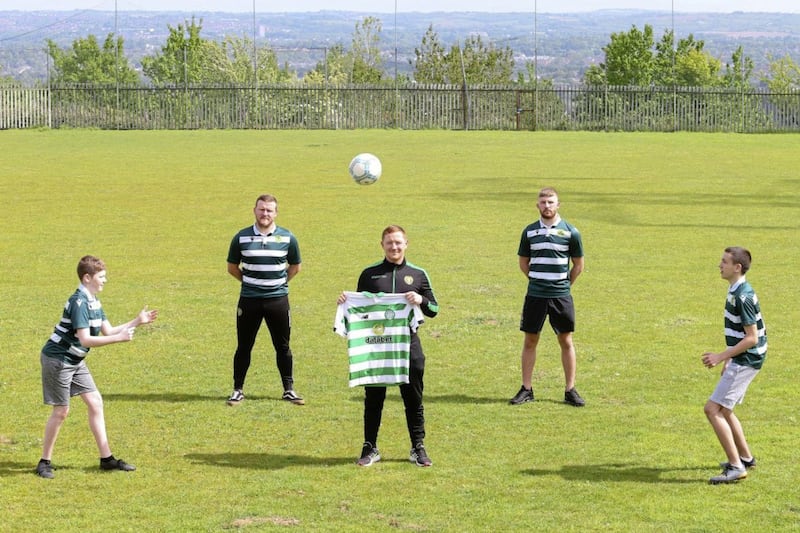CELTIC FC legend, Belfast’s Charlie Tully, is widely recognised by fans of the club as the Hoops’ best ever inside left.
In 319 appearances at Glasgow Celtic, from 1948 to 1959, he scored 47 goals and won many titles, but more than that he is remembered for tales of his skill and flamboyance that have been passed from generation to generation.
Tully was a native of the Falls Road and played for Belfast Celtic before leaving for Scotland. His son Charles Tully Jr is president of Belfast Celtic Society, for whom Charlie played from 1944 to 1948, and he is working to keep the good name of his father alive. Tully Jr said of his position:
“It’s been an honour and a privilege to be involved with the society in terms of the work it does to keep the good name of Belfast Celtic alive and, obviously from a personal point of view, it’s a privilege because of my dad’s connection there.”
He describes his father as possibly the “first genuine football celebrity”, and says Charlie’s exuberance explains his long-lasting popularity.
“With his personality and character, he was a genuine showman. He played to the crowd and to the terraces, in particular to the ‘Jungle’ at the old Celtic Park, which was a side of the ground where a lot of the characters from Glasgow who supported Celtic gathered.
“Added to this was his genuine skill and wizardry, he had many titles during his career, ‘Crown Prince of Soccer’, ‘Cheeky Charlie’ etcetera, so I think he was unique in his time.”
One of the things Charlie is most remembered for are his goals scored straight from corner-kicks. Against England he scored one such goal. Famously, he got into a bit of verbal sparring with Alf Ramsey before the game.
Tully asked the ex-England manager: “Do you enjoy playing for your country, Mr Ramsey?” When Ramsey said yes, the Celtic man responded: “Make the most of it then it might be the last chance you get.”
Tully scored both goals in a 2-2 draw so perhaps this was more than mere bravado.
His son Charles Jr also noted that he scored two goals from the corner flag against Falkirk in a Scottish Cup tie.
“In February 1953, he took a corner, in it went, the referee said he had to take it again because I think the linesman indicated that the ball had been outside the arc at the corner flag,” he said.
“He immediately replaced it and scored again. You might say to it once was a fluke, but to do it twice was probably something else.”
One of the most enduring tales about Charlie was his reluctance to exert himself while training, much to the annoyance of his team-mates including Jock Stein, who would later manage the club to their famous European Cup final victory over Inter Milan in 1967.
Charles Jr concedes this is no urban myth, but says that his talent more than compensated for this quirk in his game.
“He didn’t enjoy that aspect of the game so basically he did as little as possible, but for him the enjoyment was actually playing.
“In those days there was no sports science, you did a lot of running without the ball and I don’t think that particularly appealed so if he could get away doing a few laps less he would certainly try it.”
Charlie won 10 caps and scored three goals for Northern Ireland between 1948-1958, and was unfortunate not to have featured more at international level.
“I think he was honoured to play with his country, I think to be selected was tremendous,” says Charles Jr.
“He probably did suffer in selection terms because he was a Falls Road boy playing for Celtic, but he also would’ve had more caps only for his injuries.”
After retiring, Tully’s passion for football meant embarking on a management career, including leading Bangor FC to their first ever senior title.
Tully Jr said: “He had stints with Bangor, Portadown and Bangor again. In 1970 he won the County Antrim Shield with Bangor, their first honour.
“Even when he hung his boots up and couldn’t play any more, his love for the game continued and this was a way to nurture that. To continue to be involved, particularly to see the young players maturing and coming through, it kept his interest in football going to be quite frank about it.”
Tully died at the tender age of 47, on July 27, 1971. A sign of the deep respect held for him was when the Falls Road was brought to a standstill on the day of his funeral, which is still fresh in his son’s memory.
He said: “1971 was a very difficult period in Northern Irish history with the Troubles in full flow. At the time Glasgow Celtic wanted to honour my dad by bringing the whole team, but they were advised on security grounds by the RUC at the time that it would not be a good idea.
“The likes of Jock Stein and Sean Fallon attended and there were members there from the Glasgow Rangers Supporters Club and from Irish League clubs...
“I think my dad, being a real character, was greatly respected for being a football person and the crowds on the day were absolutely tremendous. And for me as a young man, I was 21 then and it that was certainly an eye opener to be quite honest with you; I probably learnt more about my dad since he died than maybe I knew beforehand.”
Tully played in the black-and-white era and his son is understandably proud that his father’s reputation has, if anything, flourished over the decades.
“We created charlietully.com which is there to this day. We also have the Belfast Celtic website [belfastceltic.org], and we have a ‘Friends of Charlie Tully’ page on Facebook so we’re constantly promoting his name based on relevant occasions to keep the legend’s memory alive.”
He added: “One of the astonishing things for me is he’s dead nearly 50 years ago and those Celtic supporters who would never have been alive during his era now know about Charlie Tully because it’s been handed down by their fathers and forefathers. For me, that is so awesome and special.”








